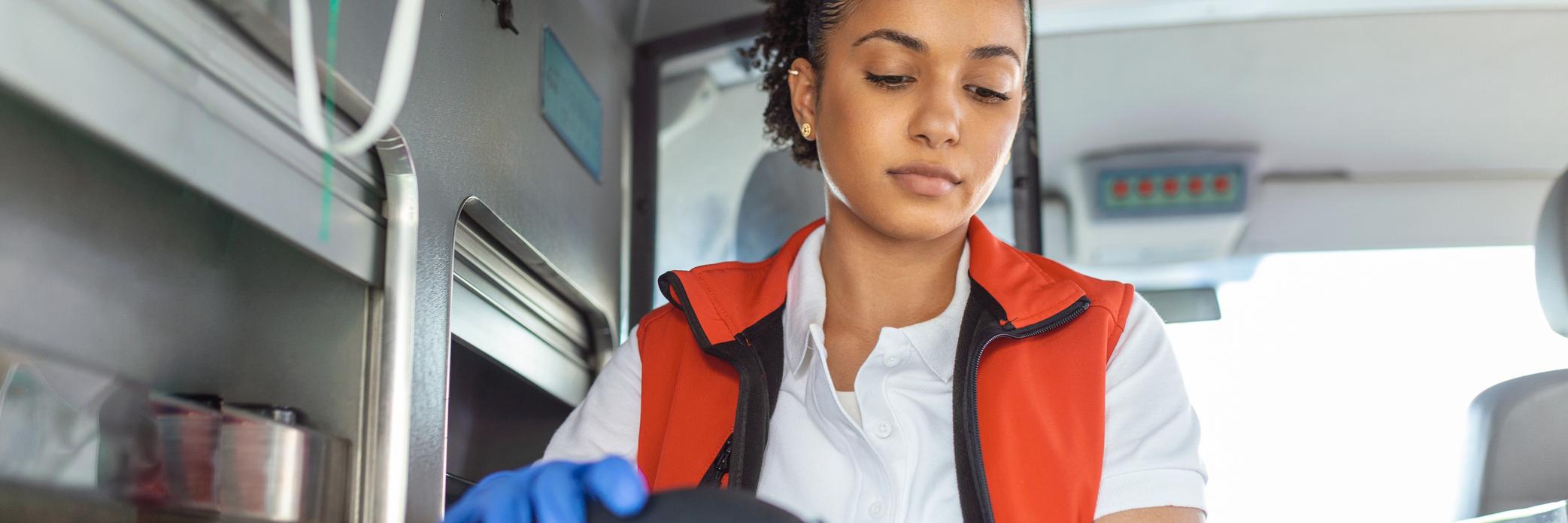The Department of Health and Society is proud to announce the launch of a new Specialist Program in Paramedicine, scheduled to commence this coming Fall.
The Paramedicine Program, a joint program with Centennial College, allows students over four years of study to earn an Honors Bachelor of Science from the University of Toronto and a Paramedic Diploma from Centennial College. By the conclusion of the third year of study, students are prepared to undertake the requisite examinations for practicing paramedics.
DHS will now be leading the Specialist Program in Paramedicine. This will involve transitioning to an all-new curriculum, after a successful tenure by the Department of Biological Sciences, responding to the significant evolution the field has undergone in recent years.
“The Paramedicine program was initially developed with the leadership of the Biological Sciences Department,” says Department of Health and Society Acting Chair Mark Schmuckler. “At the time it was perfectly aligned with the direction of the field. However, paramedicine has changed, aligning today with an additional focus on its role in the broader healthcare system and the diverse systems that impact health. The Department of Health and Society is delighted to continue stewardship of this program at UTSC, and alongside our partners at Centennial College, to provide revised course programing that takes into account these significant developments.”
Paramedicine in Canada has experienced significant changes. For instance, in addition to emergency and urgent care, paramedics are playing a role in primary care in under-serviced rural areas, have been integrated into models of care intended to support healthcare pressures, such as emergency department overcrowding and long-term care pressures, and are supporting palliative and family health teams. They are becoming a unique point of access for health and social services, supporting diverse patient groups and needs. This aligns neatly with the Department of Health and Society philosophy and course offerings.
Assistant Professor and Program Supervisor, Dr. Walter Tavares confirms that the revamped Paramedicine Program will mirror these developments. “We have recognized the transition in Paramedicine over the last few years. Its role in the healthcare system has grown to include a focus on integrated community-based, and interprofessional primary health care, in addition to its core emergency and urgent care functions. This underscores the need to equip students with a holistic understanding of healthcare, and the required skills to meet current and future healthcare demands,” he said.
This transition to DHS under Health Professions and Practice, means exciting new opportunities for students, the profession and UTSC. Students will be able to leverage partnerships with the McNally Project for Paramedicine Research, the Department of Family and Community Medicine (DFCM), Dalla Lana School of Public Health, and the expansion of the Scarborough Academy for Medicine and Integrated Health (SAMIH) at UTSC. Prof. Tavares says “these relationships are providing students with access to a community of researchers committed to advancing the profession, and opens up opportunities for collaboration, research, healthcare innovation, contributions to the community and new graduate education pathways”.
